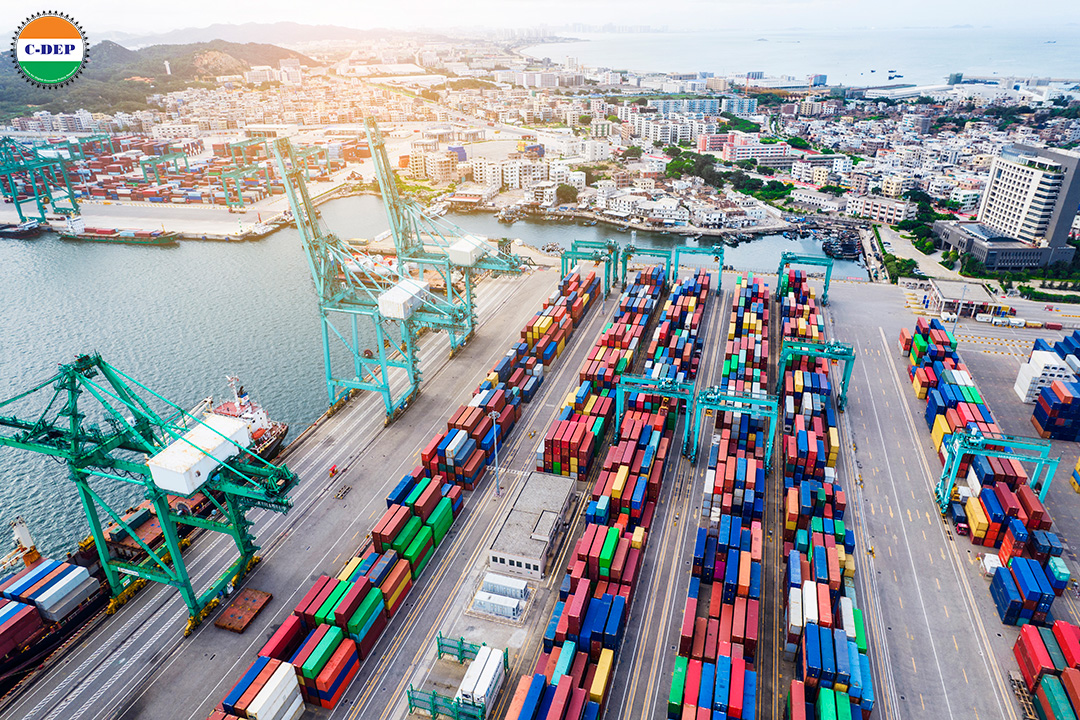
By Ruben Banerjee
Strong anti-dumping duties will compensate Indian industry for the injuries it suffers, secure supply chains, and generate jobs.
How atmanirbhar, or self-reliant, is Indian industry? The question has assumed significance since much of the domestic industry has in recent years been complaining of being catastrophically bled by the ever-growing dumping of products by foreign countries, particularly China.
The dumping, often at prices less than even the prevailing rates at the country of origin of the products, has robbed Indian manufacturers of a level-playing field. Foreign products — that are cheaper and most likely of inferior quality — are flooding the Indian market.
Consequently, many Indian manufacturers are struggling to stay afloat despite being competitive. Some, in fact, have been forced to shut shop in the face of what can be best described as nothing less than a foreign invasion. Others are surviving, just about.
None of these augurs well for the domestic industry that India wishes to be atmanirbhar. But why has this come to this?
According to a report published by the Centre for Digital Economy Policy Research, though foreign products are being dumped within our shores in ever-increasing volumes, the Government of India is strangely shying away from imposing anti-dumping duties.
For the record, anti-dumping duties are not the same as protection. The former are remedies against ‘injuries’ suffered by domestic manufacturers in the face of dumping. Data, such as this Standing Committee on Commerce report in 2018, spells out how Indian industries are suffering substantial ‘injuries’ because of foreign goods being dumped in India. Ironically, remedies against such ‘injuries’ have been in short supply.
According to the rules, the Directorate General of Trade Remedies (DGTR) — a quasi-judicial body within the ministry of commerce — investigates issues relating to dumping, and orders the imposition of anti-dumping duty as and when required. It is up to the government to act on it and impose the recommended penalty.
The DGTR’s recommendations are being rejected in an ever-increasing number, and fewer anti-dumping duties are being eventually imposed. The rejection rate is at an all-time high. Between September 2020 and October 2022, 61 percent of all DGTR recommendations were rejected, while between 1991 and August 2020, only 0.67 percent of its recommendations were rejected. The sharp spike in rejections have, undoubtedly, left the domestic industry dumbfounded.
What is adding to the puzzle is that the government is yet to give clear reasons for why the DGTR’s recommendations have been rejected, and that too at such a high rate. It has not announced any policy changes, and when rejecting the recommendations, it simply states tersely: ‘Rejected’.
The rejections have had an adverse effect across sectors. For example, many domestic producers of Penicillin-G have shut shop in the past few decade or two due to the unrestricted dumping of the drug from China and Mexico. The domestic market is now largely dependent on these imports.
It is not the domestic industry alone that the continuing imports and the non-imposition of duties endanger. They, in fact, have the potential to compromise the quality of several Indian initiatives that aim to bring about digital inclusivity by expanding the country’s broadband infrastructure.
Indian manufacturers of optical fibre and optical fibre cable, which serve as the backbone of any broadband infrastructure, have three-times the capacity of meeting the domestic demand. Yet, optical fibre continues to be imported, mostly from China.
There is a big question mark over the quality of imports as well. Measures to check their quality are inadequate, and there is a growing danger that inferior products — once deployed in ambitious initiatives such as the BharatNet saturation project to expand India’s broadband connectivity — could compromise the whole project.
Given the high stakes involved, the need for anti-dumping duties could not have been any greater than now.
There are instances galore to prove that anti-dumping duties do help. Once anti-dumping duties were imposed on imports of vitrified tiles from China, the Indian industry flourished. As against just five producers in 2005, India had 242 producers by 2021. Its capacities too increased manifold, from 3 million square metre to more than 1,000 million square metres, paving the way for greater investments and more employment.
Those who mistake anti-dumping duties as a protective measure are wrong in arguing that their imposition result in escalation of prices. For example, the price of Ursodeoxycholic Acid declined to the range of $210-220/kg from $330/kg after anti-dumping duty was imposed on its import from China and South Korea.
Anti-dumping duties, therefore, are essential as a remedy for the adverse impact of dumping. These would compensate Indian industry for the injuries it suffers and ensure a level playing field. More importantly, anti-dumping duties would help Indian industry be atmanirbhar, secure India’s supply chains, and generate jobs.
It would be a win-win for all.
(Ruben Banerjee is a journalist, author, and Director at Centre for Digital Economy Policy Research, New Delhi. Twitter: @rubenbanerjee)
This article first appeared in Deccan Herald, https://www.deccanherald.com/opinion/to-make-india-atmanirbhar-strengthen-anti-dumping-laws-1221535.html.